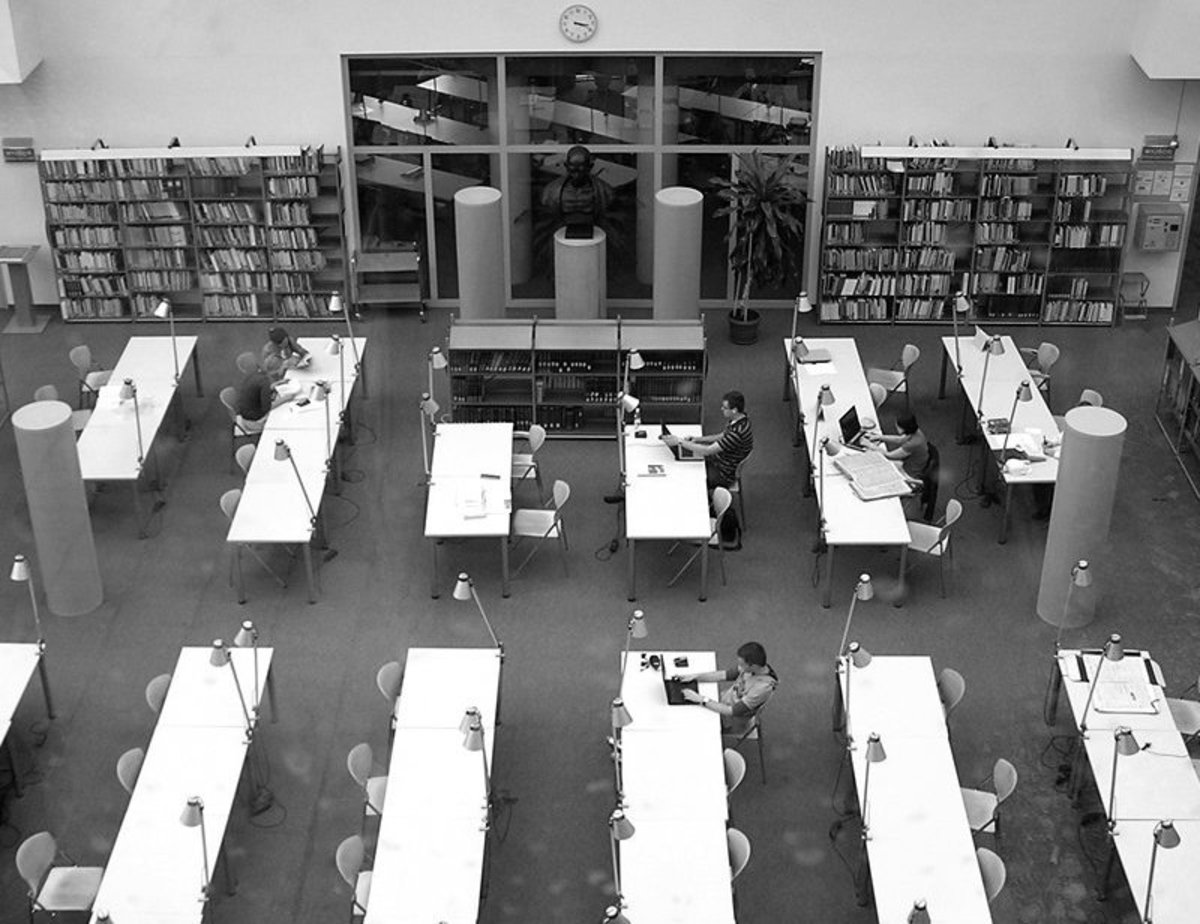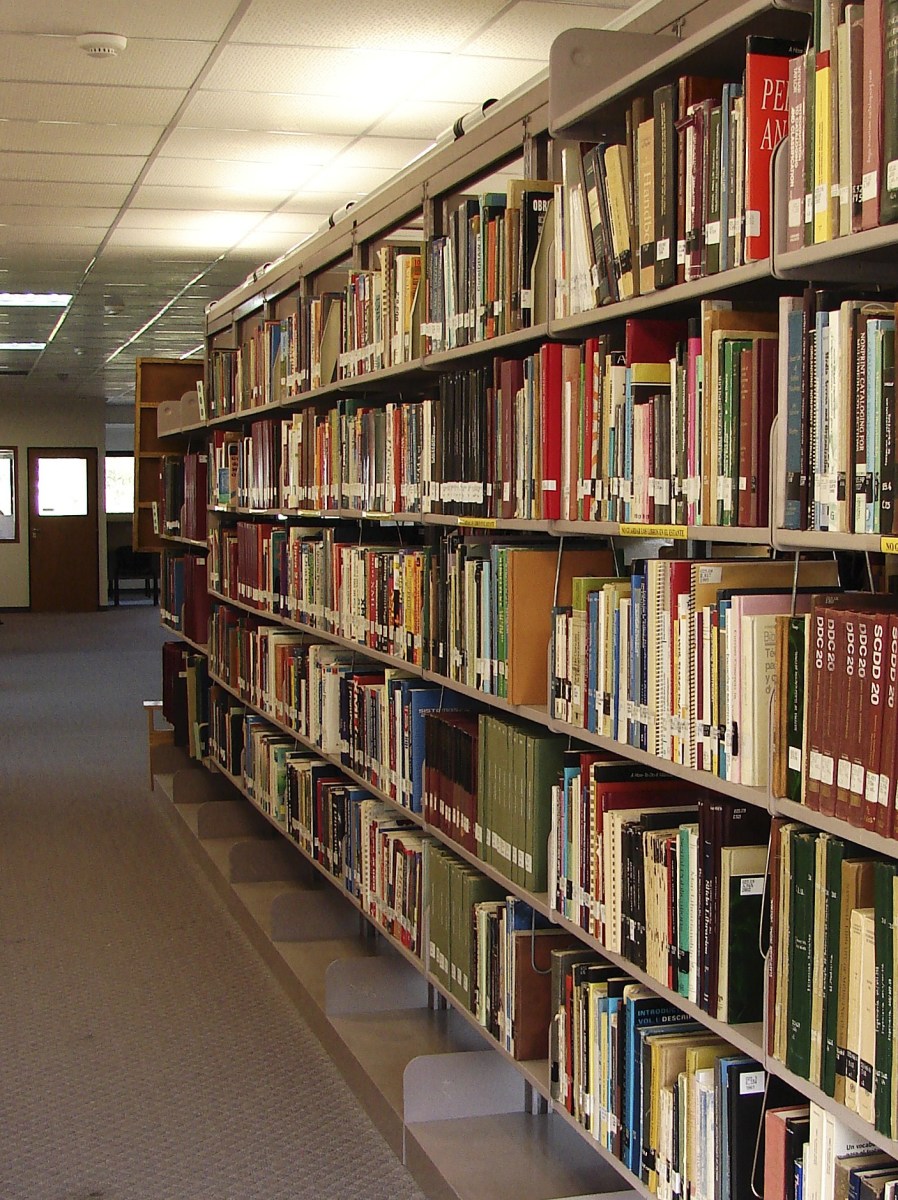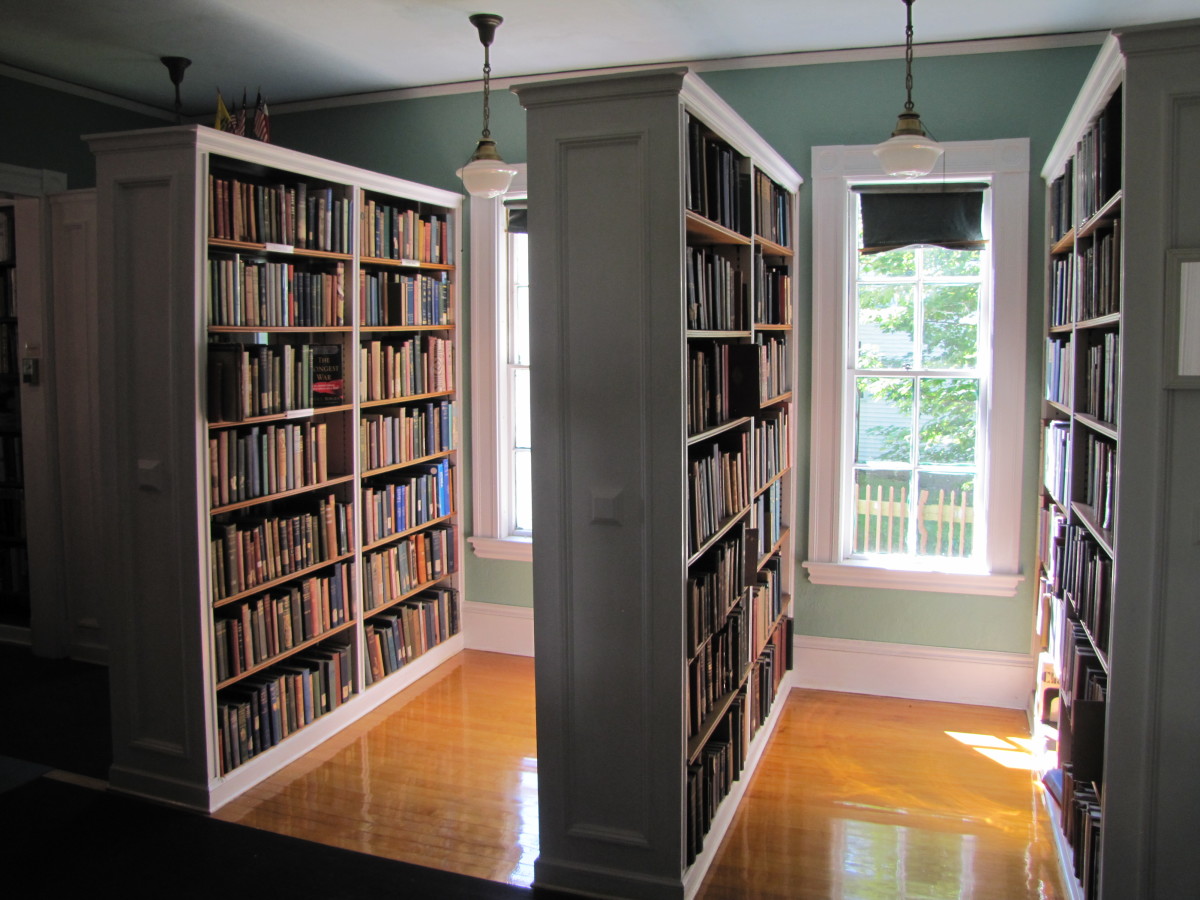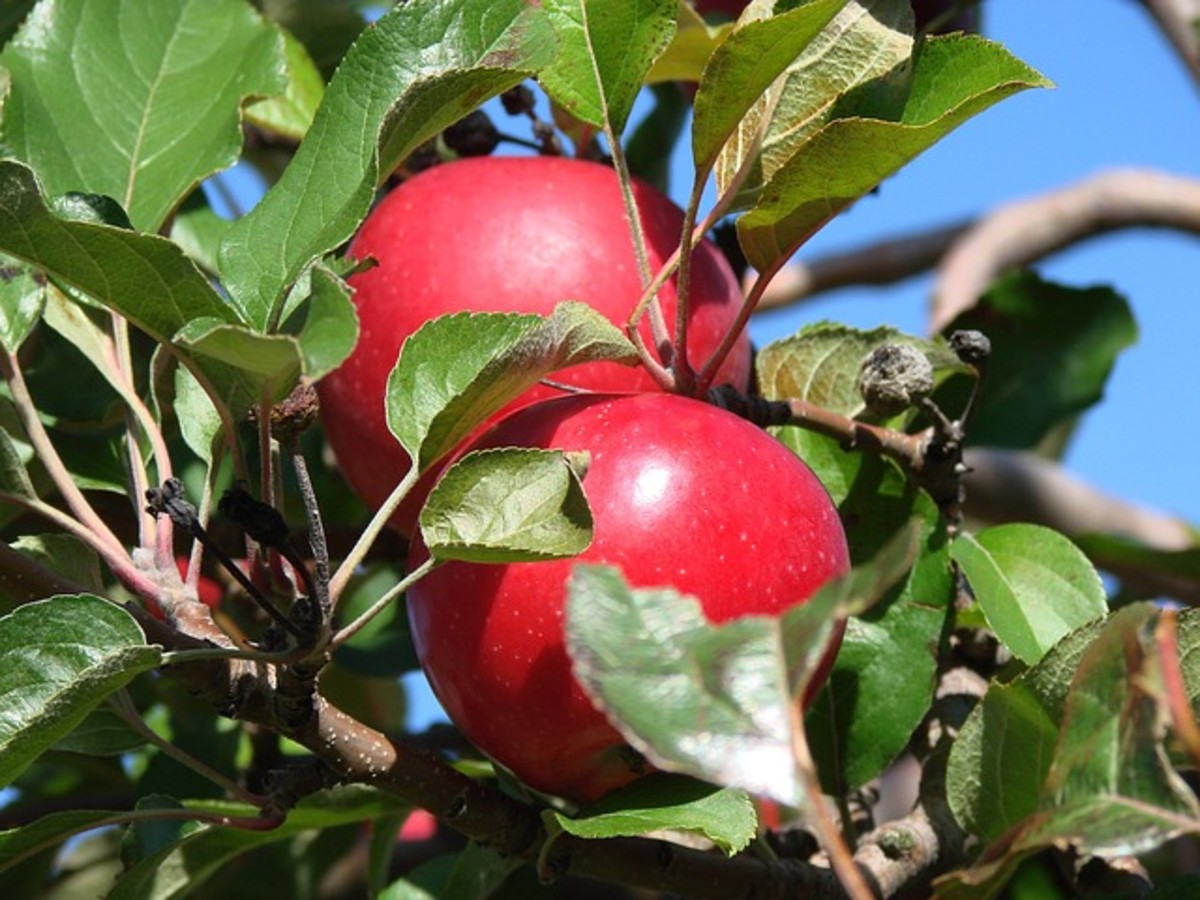Consider a Career in Library (Science)
How does one become a librarian
Most of us have been to the local public library. If not a current user as an adult - either for ourselves or visiting with our children a weekend story time - we can remember going there when we were much younger. School assignments where we had to research the president; we learned about Encyclopedias, and the Guide to Periodic Literature was a green, multi-volume set, that told you where to look for articles in "periodicals" - which was a fancy way of saying magazines. It wasn't just about books or school assignments though. Libraries were fun: you could view art on the library walls, get information on bus routes, find out about museums and listen to records on a record player. My personal favorite was 2001: a Space Odyssey with Thus Spoke Zarathustra opening and closing the album whose cover displayed a (then) futuristic space station, rockets and landings on the moons of Jupiter.
Libraries were places that were supposed to be quiet even though they were occupied by strange and unique noises: the shuffling of cards from the cart catalog, the sounds of drawers being removed and replaced, Xerox machines, microfilms and microfiche. Sometimes even the overhead fluorescent light fixtures would hum a song of their own, as readers thumbed the pages of books that vibrated over tables, and a small symphony of chairs sliding over carpeted floors. They were busy, occupied, seemingly places of commerce, the electric typewriters clicking away like the tape in a movie about the New York Stock Exchange. Telephones on desks, shuffling with paper would call out: there was no email back then and the only IM had a B in the middle.
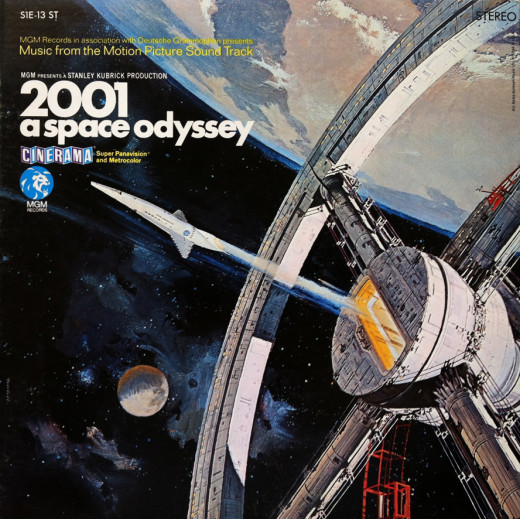


Certainly, the internal landscape of the modern library bears little resemblance to the scenery one would have encountered visiting your library twenty or twenty-five years ago. Books are slowly disappearing, instead of records you will see CDs, brochures and information bulletins are being replaced with small square barcodes that are scanned by a portable device and the information is then teleported to one hundred and eight other computers within a 1500 square mile radius of where the operator is standing. You won't see a card catalog and the reader's guide to periodic literature is no longer a viable title which is why I didn't use any capitals except at the beginning of this sentence.
However, libraries are still with us and they still contain popular literature and information that is useful to us such as cook books, automotive manuals that demonstrate the proper way to inspect a transmission and books that will warn you that it isn't a good idea to open a bee hive and gather fresh honey yourself, even if you are a true connoisseur. Unless of course you use gloves, in which case it would be perfectly fine, a long as you are not allergic to insects and you are comfortable receiving stings in every part of your body except your hands.
Libraries still have tables where you can peruse books - either in paper form (hardcopies) or on a computer screen (digital books or e-readers). You still can obtain a library card provided you have the proper credentials and agree to bring any materials you borrow back within the allotted period. There are people you can approach and seek advice from and usually they are located behind a desk. Often there is artwork on the walls, there are meeting rooms where you can learn things from people who want to tell you about an issue or share stories. You can type up documents - not on a typewriter though and you can sometimes listen to music or even watch films.

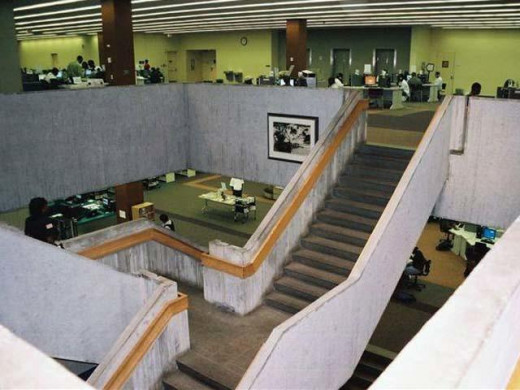
What does it take to become a librarian
Some people may wonder what it takes to become a librarian? Does your mother have to work in a library? Do you have to be invited? Do you have to be a woman who wears a bun in her hair or a woman at all? The answer to these questions, is of course No. You should have a certain appreciate for your local municipality though since most libraries are associated with cities or counties. It also helps to know a little about books or at least have enough respect for them that you don't leave them on a bathroom floor or use them to put on the bottom of your birdcage unless of course the book is about a colorless non-color - like grey for example, in which case it would certainly be suitable to serve as a placemat for your parrot friend.
Mostly though, on would need what is called an MLS or sometimes and MLIS. An MLS is a Master's in Library Science and an MLIS is a Master's Degree in Library and Information Science. In order to get into graduate school though you will need a Bachelor's Degree. It doesn't have to be anything in particular, liberal arts, engineering, biochemistry, it's all pretty much up to the fact that you managed to pursue a degree of higher learning. If you managed to make it through college, you would definitely have an understanding of the importance of libraries and the need for journals and other publications to produce articles for students to learn from and cite in their papers. You probably have a deeper respect for academia and the higher mind.
Not everyone who works in a library though has a Master's Degree in Library studies of some sort. There are pages who often are students or retirees that assist in making sure the books and other materials are put back on the shelves in an organized manner. There are the clerks who help register the patrons and collect the items when they are turned in. Often these are the people who you pay fines to or may see initially when you visit the library. The librarian is someone who makes decisions on the more internal operations of a library. She or he may select materials and determine where they are put in the library. They will, for example, determine how many copies of the latest Stephen King novel will be acquired and how long they may be checked out for and such. They will decide if the library needs to purchase more materials on the history of Standard Oil and whether this book should be a reference item or not and how many the library should invest in. Librarians will answer questions for the patrons - or customers - who come into the library and will often show users how to find materials themselves using the libraries catalog.

Are Libraries (and Librarians) Still Necessary?
With the ubiquity of the internet and a plethora of information available to anyone with the ability to type in a few key phrases into a search engine, one might ask, are libraries even necessary. At one time in our history, if you wanted to verify a fact, look up something historical, you probably headed over to your library. With volumes of titles available, a library could immediately access The Great Society speech by looking through Familiar Quotations. You could get biographical information on Miles Davis by looking at the proper issue of American Biography. If you wanted a picture of a trilobite, the World Book Encyclopedia is probably a place you would have started with. Now you could see entire concerts, watch time lapse images of the erosion of a mountain, or listen to almost any famous speech, complete with moving photographic images of the speaker. Therefore, it might seem, that libraries are obsolete, at least for the general masses.
Libraries however, are designed to be there for the public. That means, anyone, regardless of their economic background, what they look like, their age, can go into a library and seek out knowledge and information. You can sit there and enjoy a book or a new magazine without anyone questioning the reason you are there. (This is true in most cases, although there are some bigoted and hysterical library employees out there who often guard the collections as if it were their own private property). Libraries are there for the poor, or those who chose not to have access to the world wide web. Not everyone buys into the internet or sees it as a necessary domestic tool, more important that television or a washing machine. Libraries are there for travelers who are seeking something familiar when visiting a city which may be entirely new to them. With libraries, come a sense of security.
Libraries are also the history of a given place and the archives of a society. They are like time capsules which capture the voices of the present which are constantly evolving into things past. You can visit a library and see last years best sellers, you can look up the city records of the previous decade, you can listen to the final recordings of a trumpet player who passed in 1988. When one considers how fast and quickly one's years pass by - isn't life but a vapor - it is important that we manage areas in which to save the moments of today for the generations of the future. Libraries serve that purpose. They are temples, churches, in short, libraries are sacrosanct.



Libraries are so important, that during wartimes, that they were often the early targets of enemies. Without libraries, there is no evidence of past, It's the place where the history of a society is stored. Our library of Congress still catalogs every copyrighted title, piece of media, recording, so that one day, years from now, they will remember what we were like. Photographs, movies, magazines are all part of our cultural literacy preserved in sacred buildings, kept alive in tombs.

